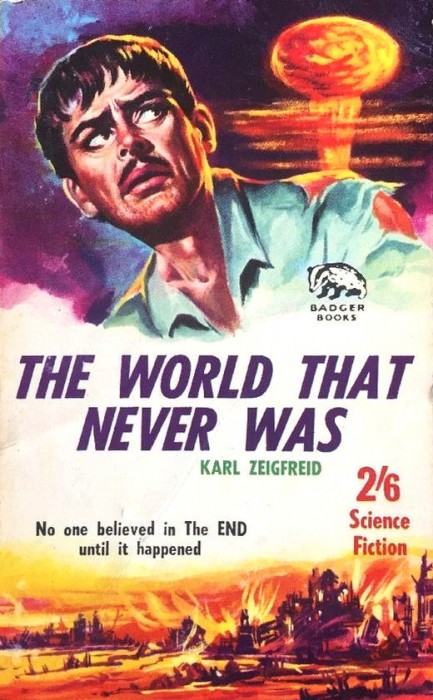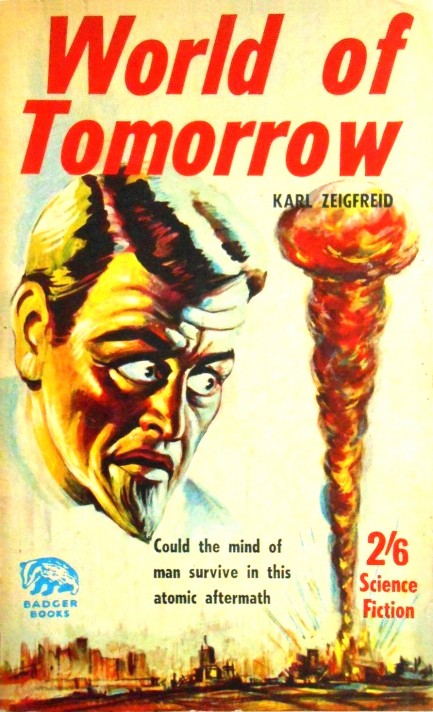| Vintage Pulp | Sep 17 2020 |

In today's forecast there's a thirty percent chance of radioactive rain.


These two covers from Badger Books with art by Henry Fox and uncredited (probably Fox again) serve as an addendum to our collection of covers featuring nuclear explosions. Author Karl Zeigfreid is an interesting figure. He was really British stage, television, and radio actor Lionel Fanthorpe. As Zeigfreid and other personae he wrote more than one hundred paperbacks, and is still churning them out, with his most recent effort hitting shelves (or online sellers) last year. He published both of the above books in 1963, as well as several others that hit on themes of mass death and apocalyptic destruction and searing heat and melty skin and bloody vomiting and burned out eyeballs. Always keeping it light here at Pulp Intl. Still, it's useful to be reminded occasionally that the threat of nuclear conflict remains high, because humans are bad at sharing, particularly when it comes to planetary resources. Despite all the supposedly complex reasons for geopolitical conflict, the reality is the adults of our species are no better than children. Well, let's hope the melty eyes thing never happens. Then you wouldn't be able to see our website.




































































